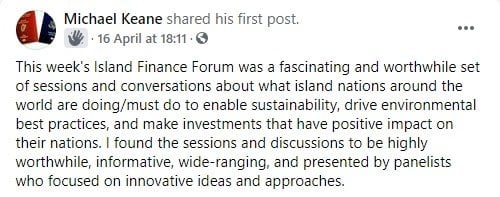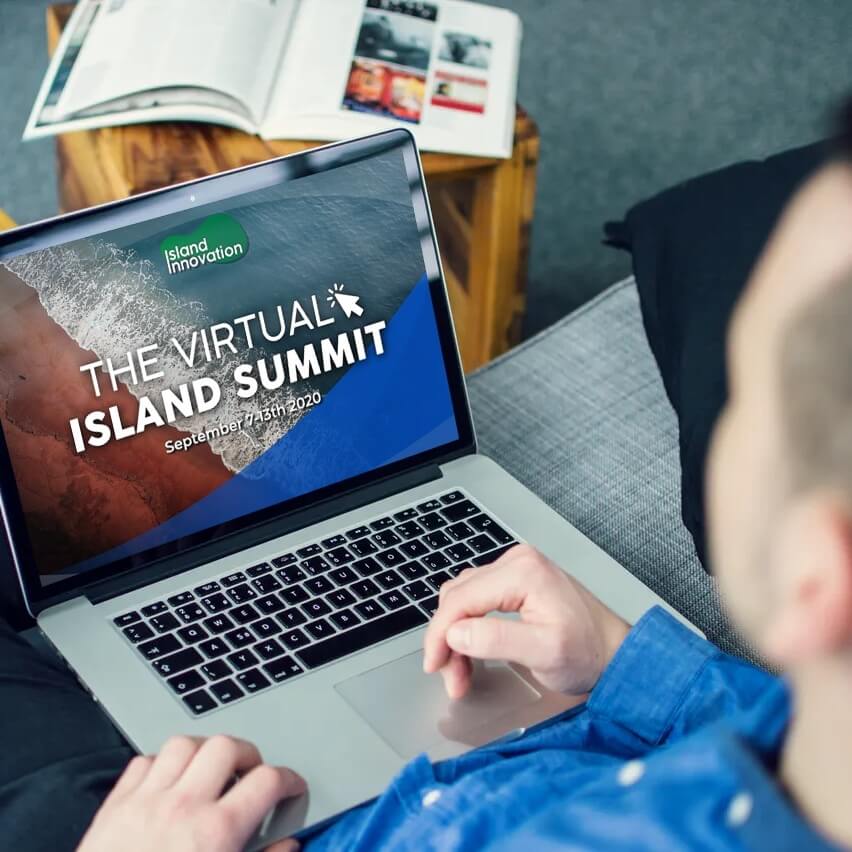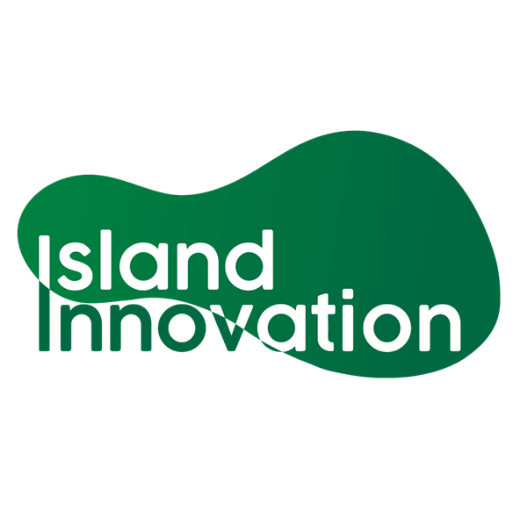Touted as an escape from the mainland, islands tend to be represented by society at large as an isolated paradise far from everything. While this notion of isolation has helped fuel tourism, distance has created physical barriers that have limited opportunities for island communities to take part in global discussions.
In a world that values knowledge-sharing, real-time access to experts, entrepreneurs, and academics, islands have been at a communications disadvantage. Whether it be distance, insufficient infrastructure, lack of opportunities, or issues with funding, these resilient communities have had to innovate in order to stay ahead of the curve.
Where many islands are at the forefront of policy, governance, technology and in solutions for environmental and sustainability issues, they have often lacked an ability to share their expertise with their counterparts and the rest of the world.
But how do you connect thousands of islands around the world and create a network capable of helping each other and sharing best practice?
Building digital bridges
While 2020 will be remembered as the year ‘lost’ to a global pandemic, it will also be seen as a turning point in our relationship with technology and digital media.
As society moved online we realised how little distance means when digital bridges connect you. While virtuality highlighted some of the issues associated with physical infrastructure – it enabled people, businesses, governments and academia to continue their work and stay connected. Digital bridges promote both inclusivity and diversity.
Topics surrounding inclusivity and diversity have become more popular within workplaces and society. Across the world, from school to professional workplaces, there was a push from decision-makers and leaders to ensure that everyone had the same opportunities to participate. This also opened the door for communities and groups that weren’t always able to participate in person prior to the pandemic.
Whether it be being neurodiverse, having a disability, living somewhere that makes finding work more difficult, or a myriad of other reasons that have led to people becoming marginalized or disadvantaged in some way – in many respects digital bridges have levelled the playing field. Working from home has become more accepted, online tools are more accessible, people have become more technology-literate; the transition to an online workplace has been sudden, but companies are seeing the benefits.
There is more work to be done to promote diversity and inclusion in the workplace and society overall, but technology has created opportunities to promote these causes.
When confronted with what to do regarding major events, conferences or other meetings that had previously been held physically – many decision-makers turned to an online format that quickly yielded positive results, as Caribbean Biodiversity Fund (CBF) Chief Executive Yabanex Batista illustrates,
“CCI-CBF Week 2020 was a big success, reaching a much wider and more diverse audience than our in-person events did and showing us the many advantages that virtual events have.”
These digital bridges in conjunction with an increasingly online business world have provided opportunities for island communities to become more included in global conversations. Furthermore, it has the ability to bring together so many sectors and communities, helping to bridge the gap between citizens and institutions while also reducing the distances that sometimes separate them. This makes virtual events not only an unparalleled platform for global knowledge-sharing and collaboration but also capable of leading lasting change.
A Global Village
There have been a range of ways in how events have evolved over the past year, such as:
- Transitioning physical events into digital modes like 2020 CCI-CBF week;
- Formats mixing in-person and virtual like the 2021 World Economic Forum (WEF); or
- Entirely online virtual events like the Virtual Island Summit (VIS).
The growing use of virtual spaces is set to define a new era in global cooperation. In the context of the climate crisis and the emphasis put on sustainable development, international collaboration is key to safeguarding the health and opportunities of future generations.
Every expert, policymaker, academic, entrepreneur and individual has a voice, but until the advent of virtual events, these voices could not always be heard. Online events can be used as an equity-building platform, this is best exemplified by the VIS, which began in 2019 by hosting over 4,000 attendees during a week that saw high-level dialogues between experts from global islands on a range of subjects. The following year saw over 10,000 people attend the event. On top of directly contributing to the UN Sustainable Development Goals (SDGs), events like VIS which is free, are often available for playback – increasing reach and inclusivity.
Supporting the SDGs
Greater online interactivity directly supports SDG17 which deals directly with the promotion and implementation of all SDGs. Knowledge-sharing between global communities can ensure that sustainable solutions and practices can be more easily implemented. Enabled by the rise of more virtual events and workplaces, SDG17 along with other goals such as SDG8: Decent Work and Economic Growth and SDG10: Reduced Inequalities stand to see progress made on a global scale.
Virtual events lead to active collaborations and discussions between communities living in remote parts of the world while promoting interconnectivity and multilateral knowledge-sharing.

Benefits of virtual events
On top of being low-carbon and removing most of the aforementioned barriers to entry, these events ensure that every voice is heard and every community is represented.
Any community’s knowledge can now be accessed no matter their location in the world. This helps promote trust between the public, governments, academia and entrepreneurs, highlighting how these sectors and communities can collaborate together on creating workable solutions for a sustainable future. Inclusivity and knowledge-sharing are an integral part of continued development and virtual events are helping bring that to fruition.




